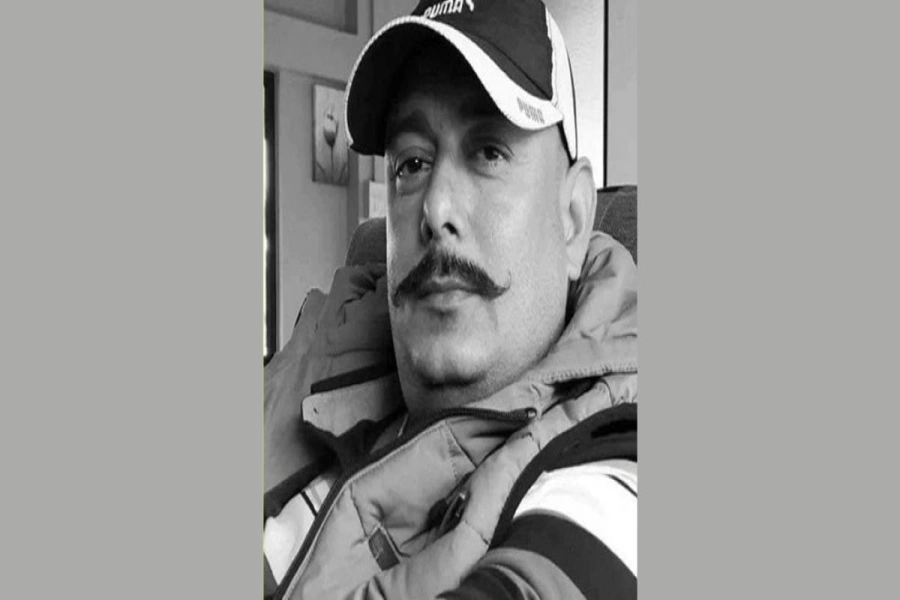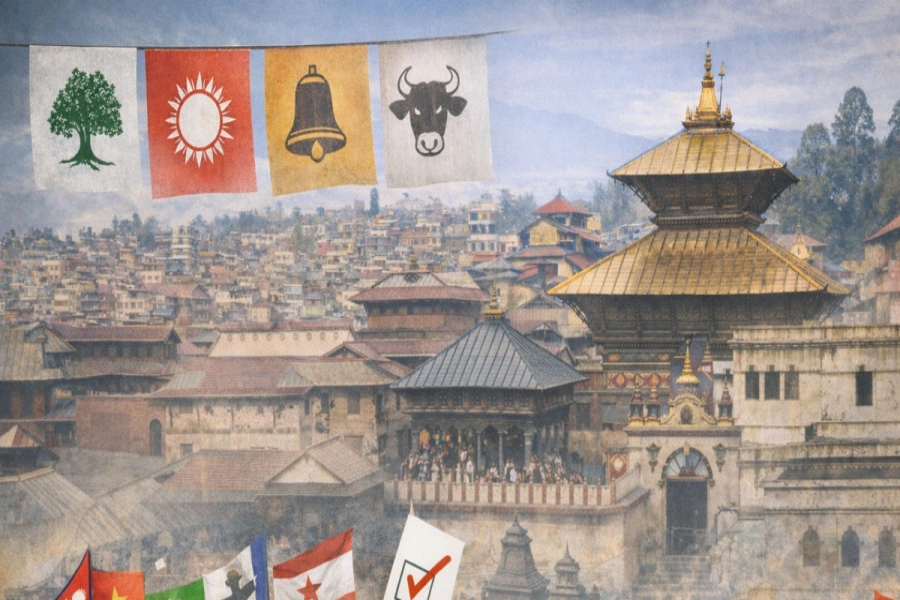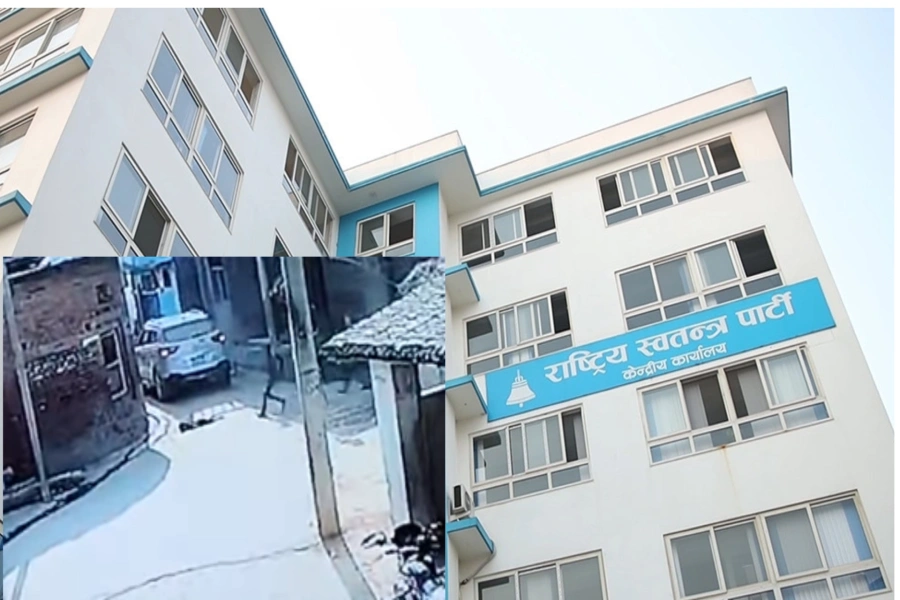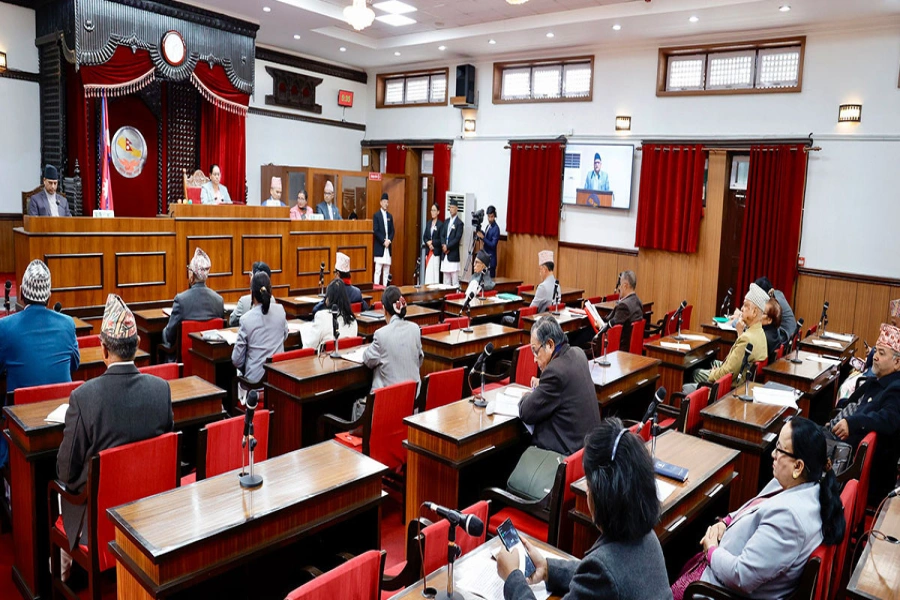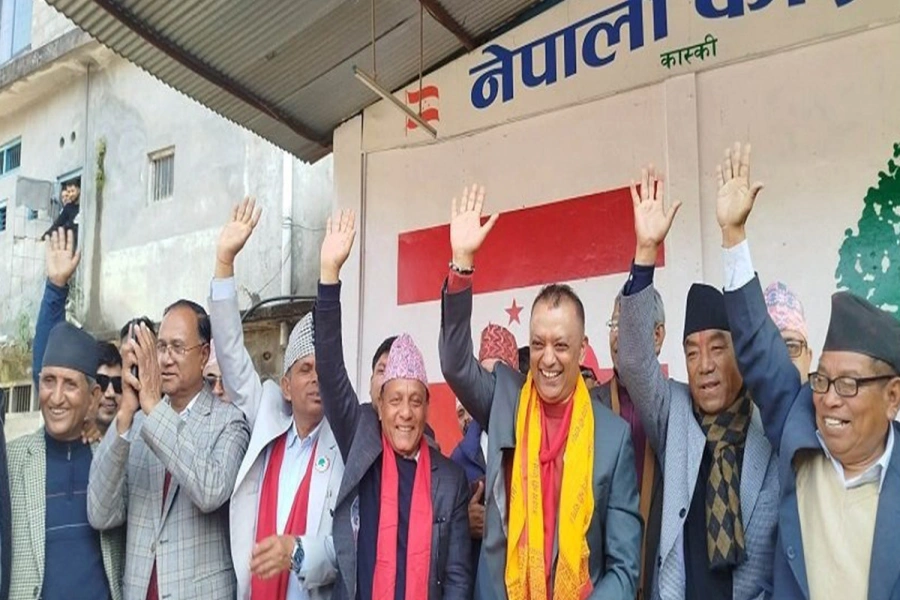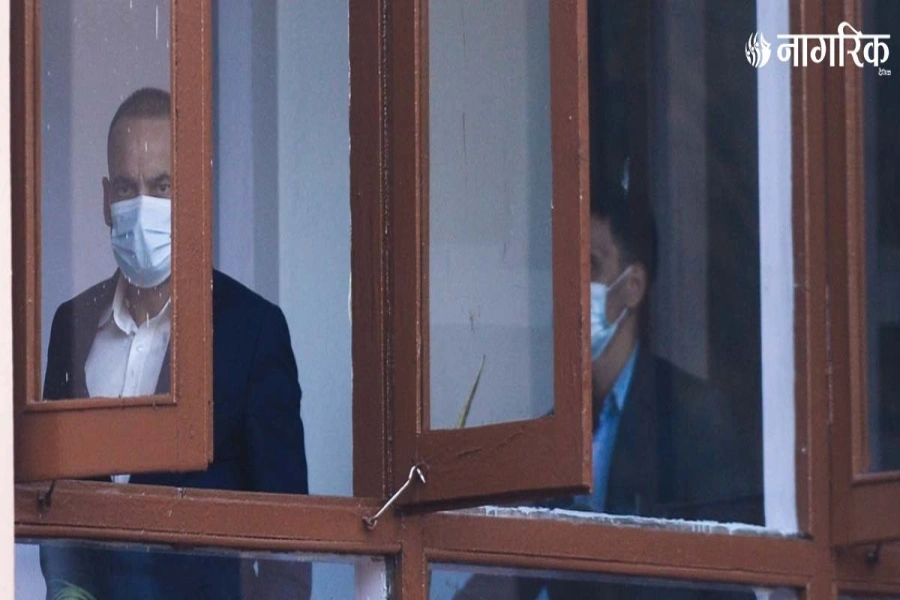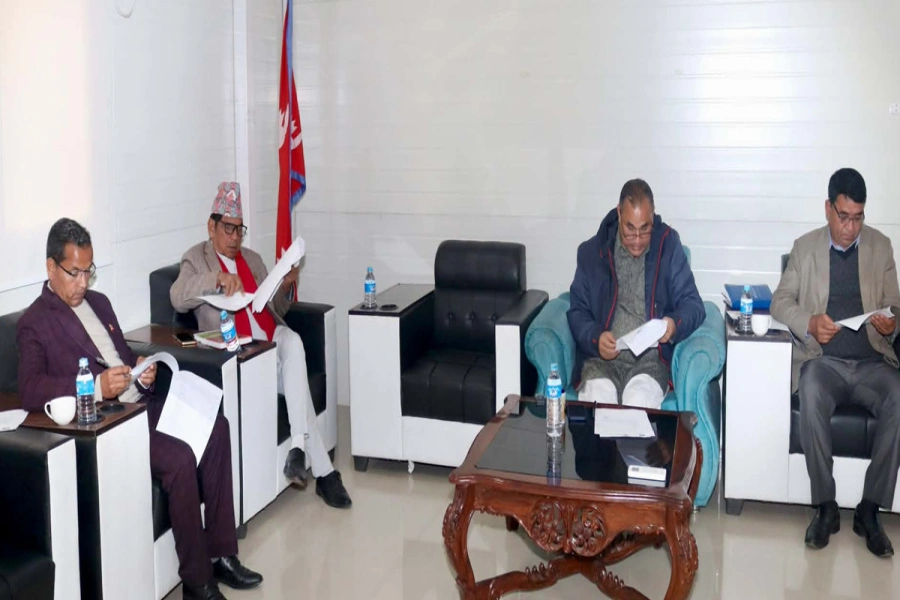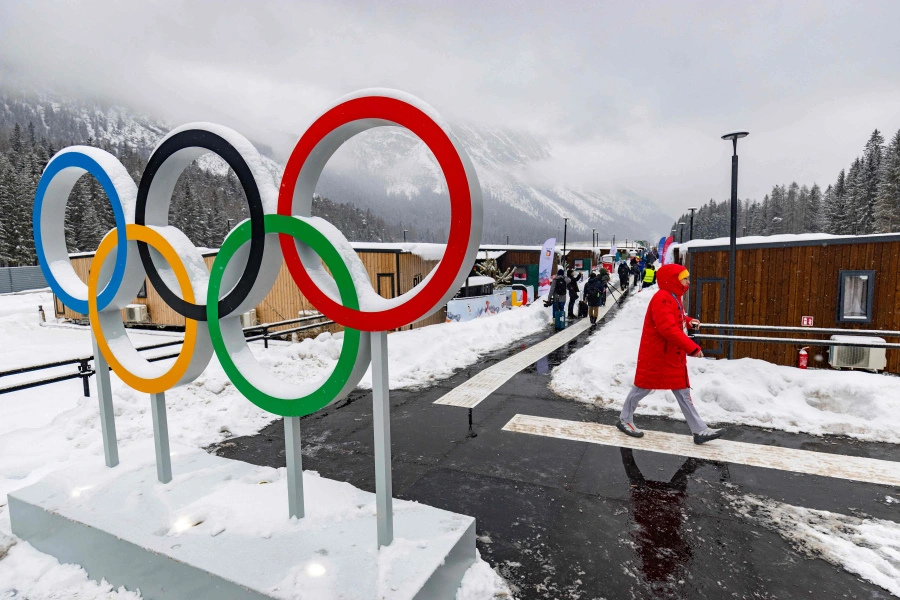When Nepali leaders go to Singapore or Bangkok for health examination, they become the subject of huge public criticism. If they improved services in public health institutions, all Nepalis would benefit and they would not have to leave the country for treatment, goes the refrain in our discourse on public health. Personally, I have been outraged by lack of proper service delivery in public health institutions. Deteriorating situation of public health system alarms every thinking Nepali citizen. I wanted to discuss some root problems of Nepal’s public hospitals with Dr Bhagawan Koirala.
He called me to a private hospital (right next to his residence at Dhumbarahi) and I agreed. The location was convenient for me as well. I reached the venue earlier and had to wait for about 20 minutes. In between, I went inside this new hospital. It looked perfectly managed: the floor was speckless, the whole area smelt of aroma. Inside the restrooms, there were soap dispensers fixed by wash basins.
When I walked out of the restroom, I saw Dr Koirala approaching toward the hospital entrance, surrounded by people asking him questions. He took me to a quiet room at the corner. “How long will you take?” He was in hurry. “Not more than 30 minutes.” His mobile phone was ringing now and then. I began with this question:
Why cannot Nepal have a public hospital as clean and as well managed as this (referring to that private hospital)? What actually ails Nepal’s public health system?
There is no good answer to such a big question but essentially it is lack of ownership of the public health institutions. Lack of sense of ownership mainly from the political class is responsible for the country’s ailing health. Obviously, there is a question of resources. We do not have enough resources. But we also do not have the drive and commitment to fully utilize the existing resources.
Starting from the bureaucrats—the regional officers and hospital managers—to political leaders, they don’t take public health institutions personally. If you are holding a chair, you should take it very seriously. I tried it in TU Teaching Hospital when I served there as the Director in 2013. I introduced some basic measures such as opening dispensaries within the hospital, introducing token system etc. Some of these are still functioning and have contributed to making service delivery smooth and timely. But at the end of the day, I realized that I failed in that initiative. Or you could say the system failed me. If everybody in the system had felt this sense of ownership, I would not have had to quit from that mission of strengthening the system half way.
One standard story around health sector is that our doctors do not work sincerely, they are all after money and this is what is failing our health. How far is that story true?
That story is only partly true. Again this ownership issue comes up. If the manager takes up the responsibility and works accordingly, his/her subordinates have to listen to him/her. This has not happened in Nepal’s health. In any sector everywhere, majority of the people are fence-sitters. There is nothing like die-hard opponents or die-hard supporters. They will avoid duty if there is laxity in the system. But they will follow the rules if the system is well-functioning and clean. When the leadership itself is not assertive or moral or law-abiding, the subordinates will obviously become the same. If the leadership works hard, creates the situation for subordinates to work properly, the subordinates will obviously follow the leadership. Yes, there will be some outliers but the system will still function.
Dr Bhagawan Koirala appointed as chairperson of Nepal Medical C...

There are generally four Ms to making the hospital system work—manpower, money, machine and management. In our case, the least of the problem is money. Yes, we have not had enough of it given the size of our economy. But given the proper management, money is not a big issue. If you have a house, it does not have to be big. If you keep the house well-managed and clean and it still works. In case of our public hospitals, even if we can keep them clean, provide running water round the clock, these hospitals would look very good. Yes, you need technology and trained human resources with right kind of attitude and expertise. To handle all that, you need to have proper management system in place. Our problem today is that we lack the combination of all four—money, machines, manpower and management. We have bits and pieces of all. We have some best examples of management in district hospitals. Elsewhere, we may have the best machines as well. But there is no combination of these factors. Sense of ownership by leadership, sense of control by management and sense of belonging and discipline by employers involved are essential for making hospital system up and running. This is what sorely lacks in public hospitals.
We do not have a single large-scale public hospital opened by the state post-1990. Can we attribute this to lack of sense of ownership from political class?
It is not true that no big hospitals opened up post -1990. Cancer Hospital in Chitwan and BP Koirala Institute of Health Sciences in Dharan are two big institutions which opened up post-1990. But the management system there seems to be crumbling every other day. I would attribute this to lack of sense of ownership by the state actors. In the beginning, they worked to establish these hospitals as great institutions. And they succeeded because they had taken the sense of ownership. But slowly and gradually, the hospital managers themselves started to put their personal interests over the interests of the institutions. People started to become indiscipline. Unionism became dominant. As a result, the standards and professionalism of both these hospitals have gone down. Bir Hospital was upgraded and Patan Hospital was converted into an academy. These were the good works happening post-1990. Public health institutions are opening in Karnali, Rapti and Pokhara but they have not been able to contribute much. Few creations post-1990 have not been able to leave an impact.
Where did public health institutions go wrong? How can we revive them?
Public health institutions began to rot from the top. So, we need to reform them from the top level. People often say if top leaders begin visiting public hospitals for treatment, many of the problems would be solved. It would obviously help to a certain extent but this alone does not work. If our leaders visit public hospitals just for show off and call their private doctors for treatment at home that would just be a meaningless drama. But if they demand service from the public hospitals, if they start saying ‘I’m not going to elsewhere for treatment, you manage whatever you need to manage here itself, I will provide you resources and everything that you need’ it could make a difference. Our leaders need to provide resources and all other things that a public hospital needs and demand that they be treated there and there only. There are different ways to do it.
There should be sense of accountability on leaders. Give the public hospitals resources and ask for results. And if you do not get the results ask why and ask it mercilessly. They need to get to the root of the problems—identifying who are making mistake, who should be responsible and holding them to account. We don’t seem to have tried that approach. Unless we make people accountable for what they do or don’t do, and get to the root of the problem, there will be no result. We need to have attention to details. We don’t have that culture.
That said, I do not believe in the idea of looking up to the government for every little thing and criticizing it. Let us also do some self-reflection. We want others to become like saint, even god. We want them to be impeccable in every front. But we do not look into ourselves. Let us keep the accounts of ourselves. Are we honest? Are we working legally? Are we honest with our work, our family and our job? Are we moral? Let us also ask questions to ourselves. Let us not blame the government for everything.
Let’s get to the root of the problem then. Why cannot we have at least some more hospitals like Teaching Hospital, where even the poor can afford treatment?
Actually, this is the concept with which I am working on a new project. Of the seven provincial hospitals, the federal government has taken responsibility of five. Bheri Zonal Hospital is being turned into provincial hospital of Province 5. We need to develop these hospitals into state of the art specialty hospitals. If we could do so, they could be our hubs for those provinces. We need to have such hospitals at provincial or local levels. This will automatically reduce the flow of people coming to the capital city for treatment.
You have been working to establish a new hospital in Kathmandu. What is the basic idea and approach? Will you elaborate?
This is the children’s hospital. Our university system has this provision of forced retirement. And I am retiring in a couple of years but I still have motivation for work. But I don’t want to work in fully private institutions, though there is nothing wrong in working in such institutions as long as they are doing business ethically and transparently.
As someone who has devoted whole of his life for the betterment of public institutions, I still want to remain engaged in public sector. We cannot bring the private hospitals under government ownership. People cannot afford to take services in private hospitals because of costs. So we are working on a non-profit model. The main reason I am working on setting up this non-profit children’s hospital is that in a country with more than 12 million children, we do not still have a hospital where they can get treatment of all kinds under the same roof. Kanti Hospital could have been developed into such an institution but we don’t have a lot of specialists. There should be major sub-specialties within children such as pediatric cardiology, pediatric nephrology, and pediatric neurology and so on, just like we have them for the adults. For this, however, there should be independence of management, meritocracy, training opportunities and so on.
What exactly will be the model of operation of this hospital?
It’s a non-profit institution first of all. Under the existing legal system, you can register the hospital under pure for profit private company or trust and foundation model or not-for-profit. Ours is not-for-profit model. This will be affiliated with social welfare council. If it dissolves it will become the government’s property. We cannot generate money for salary by selling its assets. The government has also advised us to go for non-profit model. The government has provided us land on lease for the project. Initially, we will develop one such hospital in Kathmandu and make it a hub. And then we will set up such hospital in each province. That’s the long-term goal.
What has driven me into this work is my commitment to public work. People ask why children’s hospital? Why not cardiology? Cardiology is my professional expertise but my secondary expertise has been on management, policy formulation and networking. Though I am not an expert I have influenced the course of a lot of different events. When I managed Gangalal I was known as much as a manager and I had been awarded manager of the year award.
In around 15 months, I fixed a lot of root problems in TU Teaching Hospital. I have been providing feedbacks on policies to the Health Ministry, when they call for it. My work in Ganga Lal has been acclaimed beyond the country as well. It is my devotion to public service that has guided me into the new project of establishing a non-profit children’s hospital. I want people to help me in that.
( I had other questions to ask and perhaps he had other things to tell me but it was already 30 minutes since we started talking. In between, Dr Koirala’s phone kept ringing. He responded to few of them where he explained to the person speaking at the other end which medication to administer, what to do with the patients and so on. To one particular call, he responded with sense of urgency. ‘It seems I must get there,’ he said, and rushed out, leaving me wondering about his vision for Nepal’s health, leaving me thinking how great it would be if it materialized.)




